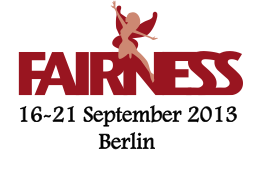Speaker
Mr
Pradeep Ghosh
(GSI Darmstadt - Goethe Univeritaet Frankfurt)
Description
In the Compressed Baryonic Matter (CBM) experiment at FAIR, the Silicon Tracking System (STS) will perform track reconstruction and momentum determination of the charged particles created in interactions of heavy-ion beams with nuclear targets. The STS will consist out of 8 tracking layers located at distances between 30 cm and 100 cm downstream of the target inside the 1 T magnetic dipole field. An ultra-low material budget is required to achieve momentum resolution of the order of Δp/p = 1%. Thus come the restrictions on the location of power-dissipating front-end electronics to be placed outside the physics aperture. The active volume of the STS is built from 300 µm thick double-sided silicon microstrip sensors mounted onto lightweight carbon fiber support ladders. The sensors will be read out through ultra-thin micro-cables with fast self-triggering electronics at the periphery of the stations where also other infrastructure such as cooling can be placed.
I will present the development status of the detector system, highlighting the overview of the STS layout, tracking algorithms, performance simulations and test results with prototypes.
Primary author
Mr
Pradeep Ghosh
(GSI Darmstadt - Goethe Univeritaet Frankfurt)

